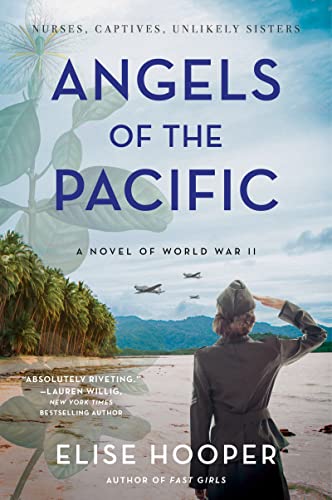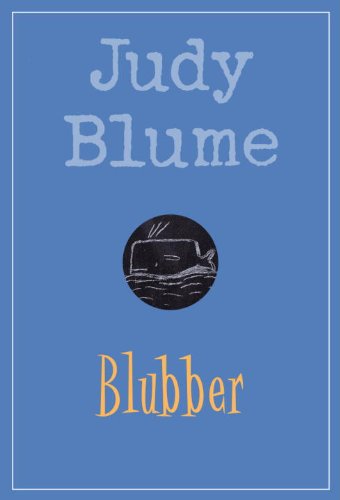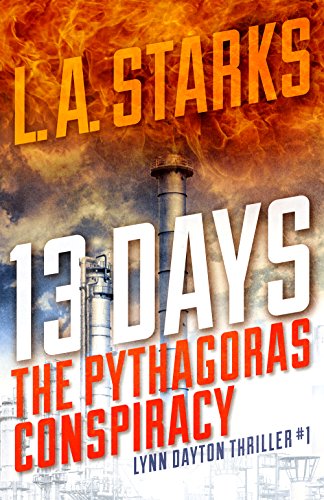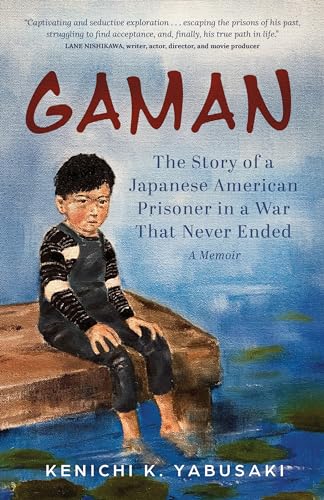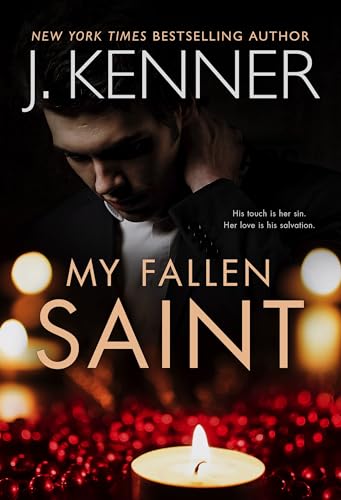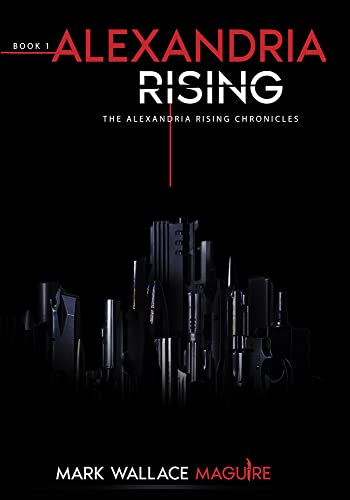In the decade since their younger sister’s death, James and Ian Lawrence have drifted apart – James to pursue a steady but humdrum career as a CPA in Kansas City, Ian to go adventuring off to Leipzig, Germany, for his doctorate in economics. But when Ian mysteriously disappears while researching the economics of organized crime, James must take a leave of absence to look for him. Risking everything, he embarks on a perilous journey across Europe, digging deeply into the business affairs of some very private, very dangerous people. But in the search for Ian, he discovers a brewing revolution that will shock the world – and change what he sees as his own place in it.
And here, for your reading pleasure, is our free excerpt:
1
February 14, Leipzig, Germany
AN LAWRENCE’S EYES were tired from scanning through hundreds of Internet articles. Sitting alone in the Handelshochschule Leipzig university computer lab, he couldn’t believe it was already two in the morning. He had chosen ten terms related to the economics of organized crime and translated each from English into German, French, Russian, Polish, Czech, Slovak, Croatian, Armenian, Romanian, and Hungarian. For each translation of each word, he searched the Web for articles or sites that might be useful to his research. Even though he couldn’t read any of the articles he found, he copied and pasted those with numerous key words into an online translator program so he could read a rough translation.
It was an article from a Krakow newspaper, with a picture of two women, that captured his attention. Both of them could have been models. They looked like sisters: one about 15 years old, the other about 20. The caption under the picture read, “Siostry Zoe i Miska w Krakowie cztery miesiące przed domniemanym porwaniem Miska przez handlarza kobietami.”
Ian stared at their picture. Something horrible must have happened to them, because his Web search included only horrible words. He copied the article into the online program to get a rough Polish-to-English translation. As he read the translated article, his worst fears about the girls were confirmed. They were sisters from Krakow. The oldest, Zoe, was twenty-three, and the younger, Miska, was fifteen. Nearly three months ago, Miska had vanished. The police opened a major investigation, and the story got a lot of publicity in the regional papers around Krakow for a month after the disappearance, but slowly, as days turned into weeks with no breakthroughs, the story faded from the press. According to this article, the whole thing would have been forgotten if not for Zoe’s continued efforts to discover what happened to her sister. Zoe believed her sister had been abducted by human traffickers and put to work as a sex slave. The investigating authorities had uncovered an eyewitness testimony and some credit card data that seemed to support the likelihood that Miska had been kidnapped. Because their family didn’t have much money and there had been no contact from those responsible, the authorities believed that sex traffickers were to blame.
Ian tried not to imagine what had happened to young Miska during the past three months if she really had been forced into the sex slavery trade. Every ounce of humanity inside him fought against the notion of thinking about this fifteen-year-old child suffering such horrible abuse for so long. He clicked back to the article and looked again at the picture of the sisters. He turned his focus to the older sister, Zoe. He thought about her losing her kid sister to crime, just as he had lost Jessica.
That was when he realized he was going about his research all wrong. He had already read every book, paper, and interview in the academic community about organized crime. He needed to do his research on the ground level. With the people. In the dark alleys of the world, where the crimes were committed and the victims suffered. And he would start with this woman Zoe and her missing sister.
He spent the next fifteen minutes typing a long e-mail to the journalist who had written the article. It was four in the morning when he finally sent the message.
He had five hours before he and the professor’s friend, Marcus Gottschalk, met at the Leipzig train station and headed to Prague. Logging off the computer, he grabbed his leather satchel with the papers he had printed from the Internet, and walked up to the twenty-four-hour library. Like a physicist looking for evidence of dark matter in the universe, he was obsessed with discovering the theoretical link between the operations of organized crime and the legitimate corporate world. He would stay up all night if he had to. How could he even consider the luxury of sleep when so many victims were suffering at this very moment?
When the sun came up three hours later, he left the library to return to the computer lab. Logging on to his account, he saw the e-mail reply from Zoe Karminski.
* * *
Ian had come into Prague from the north, circling up around Hradčany Castle, which gave his first clear view of the ancient city below him. From his vantage point on Letná Hill, he could see much of the city across the Vltava River. There seemed to be an old stone bridge every hundred yards along the river. He could see the famous Charles Bridge, permanently closed to automobiles, packed with painters and meandering pedestrians. Red roofs with a dusting of snow stood along the old city walls. Looking out over a sea of Gothic and Renaissance churches, clock towers, stone bridges, monasteries, and graveyards, he felt as if he had gone back in time.
A week ago he had given the professor his dissertation proposal regarding an unexplored research gap: economic policies and strategies that governments could implement to diminish organized crime. The professor had loved it but added that this wasn’t a topic one could research in the comfort and safety of a university library. That’s when the professor told him about his former MBA student Marcus and said they should go to Prague to research his dissertation topic.
Now that he was in Prague with Marcus, he couldn’t wait to delve into the kind of research the professor was talking about.
They took a green BMW taxi to Nový Svět, to a long twenty-foot-high wall set with brightly painted residential doorways. Marcus led him up the sloping cobblestone street that curved into Loreto Square.
“This has long been a working-class neighborhood,” Marcus said. “But it has memories of greatness as well. We are very near where Einstein taught physics for years before defecting to your America, just before Hitler’s blight swept this land.”
Marcus opened a red door and waved Ian into the shadowy interior.
Inside the dim, dank chamber, Ian felt as if he had entered a vampire’s lair. Dust motes floated in the plank of light slanting in from a high window. They descended a narrow stone staircase that might have wound down to a fairy-tale castle dungeon.
With each step he took into the darkness, Ian grew more excited. But when he reached the basement’s dirt floor, his excitement turned to unease. Without needing to take another step into the underground chamber, he saw ten faces staring back at him in the flickering candlelight.
“What is this?” he asked Marcus.
But Marcus had stepped away from Ian and vanished into the shadows like a phantom. And at that moment, it occurred to Ian that he had just walked into an ambush of some sort.
Then, without warning, a dim red light turned on overhead, illuminating the ten faces. From the corner of his eye, he saw Marcus standing next to a light switch. Marcus nodded toward the group sitting around the large wooden table that Ian could now make out. “Ian, I’d like to introduce you to some people from the White Rose.”
“I . . . recognize a few of you from the university,” Ian said. “Are you all students at HHL?”
“No,” Marcus answered. “Some are; some aren’t. Some are alumni, and others have no affiliation with the school.”
“So what do you have in common?”
“Only this,” said a girl Ian knew as Florence. “The professor found us all. Just as he found you.”
“I’m taking him to the factory tonight,” Marcus said.
They seemed surprised.
“Is that smart?” Florence asked.
“He’s ready for it,” Marcus said.
“Ready for what?” Ian asked.
“You’ll see.”
* * *
“I’ve already forgotten half their names,” Ian said. Marcus and he had left the dungeon meeting for the cool open air of the small courtyard.
“You’ll get to know them in time.”
“And there are others?”
“Oh, yes.”
“Where are they?”
Marcus looked down and smiled. “Everywhere.”
“What’s that supposed to mean?”
“Quebec, New York, Tokyo, Shanghai, Bangkok, Moscow, Paris, London, Istanbul, Dubai, Barcelona, Rome, Mexico City, Helsinki, Rio, Cairo, Buenos Aires, San Francisco, Miami, Sydney, Los Angeles.”
“What is this, some kind of conspiracy?” Ian asked as they left the courtyard through a narrow walkway between two buildings. He could see people walking in the street up ahead.
“It’s a network.”
“A secret network,” Ian added.
“We have to operate the same way they do if we expect to damage their operations.”
“They? You mean criminal organizations?”
“Yes.”
“So your ambitions are global?”
“Very much so.”
A cold gust shot down the alleyway. Ian zipped up his black leather jacket, and Marcus buttoned his cashmere coat. From somewhere in the distance came the two-tone high-low siren of a police car.
“And all the groups are like this?” Ian asked. “Ten to fifteen people? Mostly students?”
“Mostly students, yes. Change has often begun with mostly students. The size of group varies. We’re the Berlin group and we’re the largest in the world. That’s because we were the first to organize, and we helped the others recruit and develop their own chapters. But our chapter’s size is closer to fifty people. You just met a few of them. Most are still in Berlin.”
“Why are these in Prague?”
“I’ll show you tonight.”
It made surprising sense that at some point a group like this should develop from the same youthful, rebellious passions that had been at or near the heart of every revolutionary change throughout history. Still, he could scarcely believe his luck, after a youth spent troublemaking and adventuring in Kansas, to have stumbled onto what could be the great revolution of his generation. A people’s revolution against global criminal enterprise. His heart raced with excitement.
“And Dr. Hampdenstein helped put all this together,” Ian said. “Incredible.”
“He’s one of the world’s top economic professors, at one of the world’s top universities. Lots of brilliant, ambitious students come here from all over the world. Some come for a degree, some for a semester abroad, some for one of the many global seminars. And the professor travels frequently as a guest lecturer to other top schools. Many of the places he’s been, he’s found committed students eager to start their own local chapter of the White Rose.”
“How long has this been going on?”
“I was one of the first few he recruited,” Marcus said proudly. “That was five years ago.”
They left Nový Svět through a maze of uneven cobblestone streets centuries old, under a stone archway into Staré Město, the oldest part of the city. Ian felt a camaraderie with Marcus that he hadn’t felt since chasing tornadoes in Kansas with his brother. But that was nothing more than a thrill with the excuse of capturing some interesting film footage. This was different. Now he was trying to help save the world.
“You understand this could be dangerous?” Marcus said.
“I’ve been in worse.”
They went up a stairway to a large pedestrian bridge of ancient stones. Medieval gargoyles lit by antique glass lamps lined the parapets, staring out of the fog like phantoms. Ian loved everything about this world that Marcus was taking him into, though he felt a lingering sense of foreboding. He knew that whatever Marcus had in mind for him, whatever the details of the White Rose’s activities, he was ultimately being led into a world of darkness. Beneath all this beauty and history and the flocks of gawking tourists was an underworld of crime.
They had walked over a mile and were now beyond the castles and bridges and historic beauty that most visitors thought of as Prague. There were no more cafés or museums or concert halls. Marcus stopped near a large wooden doorway. Beyond this street lay furrowed fields and, in the distance, what looked like a very old factory.
Marcus led him inside the doorway, where once again a narrow stone staircase spiraled down into blackness, as if someone had carved little steps into the inner wall of a deep well. As he felt his way down the uneven steps, he held out one hand to brush against the cold stones of the wall, while his other hand slid down the iron rail bolted to the steps. At the bottom, Ian could see the dim red glow of an open doorway.
Entering, he found a dark tavern perhaps a quarter the size of a basketball court, packed with at least thirty pale-faced, black-clad Goths. Small wooden tables lined the stone walls and floors.
Marcus squeezed Ian’s shoulder and said, “You saw that factory outside?”
“Across the field?”
“Yes. There’s something there I need to show you.”
“Well, then, let’s go.”
“No, it’s not time yet. We got here too early.” He looked at his watch. “It won’t really start for at least another thirty minutes.”
“What won’t start?”
“Let’s get a drink,” Marcus said, pulling him toward the bar. “Professor Hampdenstein told me a little about your work at the university. I know you have an approach to fighting organized crime through economics—an approach never attempted before. The White Rose can help you develop and test those ideas. And in return, you can help us take the White Rose to the next level. We both want the same thing. We can help each other fight organized crime.” Marcus paused. “How long does it take to implement your ideas and bankrupt a cartel?”
“It depends,” Ian said. “If it works, two to four years.”
They found a gap in the crowd at the edge of the bar. A thin bartender with long jet-black hair was pouring shots of tequila. Her dark, sleeveless shirt exposed bare white arms with spiraling tattoos. Marcus caught her eye and ordered two vodka shots and two Denkle beers.
“The professor said that you think, with the right simulation, it could be tested in a few months,” Marcus said after the bartender moved down the line of patrons, collecting more drink orders.
“If you picked the right two criminal organizations and were directly involved, you could accelerate the process,” Ian said, leaning back on the underground tavern’s cold stone wall. “You would have to choose two organizations that already have a history of competition, preferably with some violent encounters—you’d need that underlying animosity and tension. Even then, starting a war between them will be complicated. And starting a war is only the first phase.”
“We don’t have that much time,” Marcus said.
The tavern was already a very live room, with loud ambient chatter bouncing off lots of hard surfaces, but now a Swedish death-metal song spilled from the surrounding speakers. It must be a hit in this part of Europe, because several enthusiastic patrons were screaming out the lyrics. Marcus leaned closer to Ian so they could hear each other over the angry-sounding music.
“If my theorem works, it could change the world,” Ian said. “But I need a real case study to prove it to the academic community. Otherwise, they’ll just read it with interest and debate its merit and analyze it to death and write discussion papers, but nothing will change.”
The bartender set their drinks on the wooden bar top, and Marcus paid her. When she walked back to a cluster of chatty patrons in the far shadows, Marcus said, “You sound like you believe you can get rid of organized crime.” He grinned. “I suppose the world needs dreamers.” Taking a long drink, he then set his beer down and grabbed the vodka shots, handing one to Ian. “Lucky for you, I like dreamers.” He held his oblong shot glass up to the light. “Prost und trinken.”
“To what?” Ian asked.
“This vodka we drink to forget.”
“To forget what?”
“Everything! Our childhoods and first loves and parents’ warm care and hopeful teachers and those faithful few friends we all had in our youth.”
“You think I can’t handle it—this world of darkness and crime?” Ian asked. “You think that just because I’ve studied it in books I can’t handle seeing the real, ugly thing.”
“Trust me,” Marcus said, still holding his drink up. “It’s better if we pretend to forget everything before going forward.”
“I don’t want to pretend to forget.”
“Ian, you may not realize it yet, but if you continue with me on this path, you won’t be the same person an hour from now that you are in this moment. You need to understand this before we go any further.”
Ian looked at the shot of vodka in his hand and thought about Kansas and all his family and friends still there. For the first time since leaving the States, he felt homesick. The pain and emptiness came upon him as quickly and stealthily as a nightmare can intrude on the sleeping. He wanted the feeling to go away. Marcus was right: he didn’t want to think of home. Not here. Not while journeying into the darkness to do what he felt he was born to do.
He clinked his glass against Marcus’s. “All right,” he said. “To forgetting everything.” He tipped back the shot and felt it burn his throat. His eyes watered, and his heart felt strong. He pounded the bar top twice and looked at Marcus with a sense of liberation.
Marcus finished his shot and grabbed Ian by the arm. “Now that we’re free, I can show you the factory.”
They left their beers, leaving the underground bar for the moonlit shadows of Prague’s outskirts above.
* * *
“Stay low and be quiet,” Marcus whispered. They were hunched over like monkeys, with their hands touching the ground as they moved up a grassy slope. The dim lights of the factory created a hazy illumination rimming the top of the final rise in front of them. The grass was wet and cold. The whole world was cold.
“What do they make in this factory?” Ian asked.
“Sh-h-h! Just keep following me. And for God’s sake, stay close!”
“What about security?”
“Not out here,” Marcus said. “They own enough police and politicians to protect themselves. They have guards near the traffic routes. They also have security around the sensitive areas of the factory. We’re safe here, but we can’t go any closer.”
They stopped at the edge of the final hill, still a hundred yards from the grounds below. Down at the large square gravel parking lot at the back of the factory, Ian could see seven pearl white limousines lined up. No people were in sight.
“What’s going on in there?” he asked.
“Just wait for it. You’ll see.”
“A meeting?”
Marcus looked at him with a volatile, almost hateful gaze. “Look, I promise you again, you’re about to see something you will wish you could burn from your memory.”
Six pairs of headlights were moving toward the factory. The vehicles pulled through the open gate, and maybe two dozen men got out. Ten men came out a sliding steel door of the factory and met them.
“It’s a meeting, all right,” Ian said. “Managers from the various business units of one organization? I can’t tell. Maybe it’s a multicartel meeting of regional bosses from different outfits.”
“That’s not what this is . . . Just watch.”
Another door opened, for a brief moment revealing the silhouettes of several people inside the factory. Three of the men by the car were laughing and motioning toward the door. Then out of the shadows stumbled three women in matching gray sweatpants and white T-shirts. They should be freezing in the cool night air, but their lowered heads and shuffling gait told Ian their senses were numbed.
“What is this?” Ian whispered.
Marcus remained silent as one of the men moved toward the nearest woman and ripped off her T-shirt. Her pale skin and large breasts were briefly visible until she fell to the dirt. He stood above her, waving her torn shirt like a victory flag and laughing to the other men.
“Oh, my God,” Ian said. “Is that what this is? Please tell me that’s not what this is.”
“I told you I would show you the greatest crime being committed in the world today.”
“No . . . not this,” Ian said. His anger was boiling inside him. “I could have handled almost anything, but not that.” His gaze fell to the dark, wet grass between his hands. “I can’t watch. Please tell me it’s not about this.”
“I told you the factory doesn’t make anything. It’s just one of the places they keep their girls. The men aren’t mafia bosses or capos here for a meeting; they’re just customers.”
“We have to stop them. We need to call the Prague police.”
“That won’t solve anything. You’ve studied organized crime. You know that law enforcement and political corruption is a large expense item on criminal operations’ income statements. Even if the police do come, it won’t fix the problem. We have something bigger in mind—something that could help stop these crimes. But if we tried to do anything tonight, we would only be jeopardizing our future plans.”
A deep pain burned in Ian’s chest. The girls looked weak and disoriented, dressed in rags that had been torn to look skimpy. Tears filled his eyes. “We have to do something,” he said.
“We are doing something.”
“What?”
“We’re watching. And we’re learning.”
“We’re just going to sit here as those men rape those girls!” Ian gasped.
“That’s exactly what we’re going to do.” Marcus laid a hand on his shoulder. “Look, do you think this is the first time those girls have been raped? Huh? Do you think they’ll even remember any of this tomorrow morning? They’re so drugged up, they don’t remember their own names. And you think these are the only girls those bastards are doing it to? Trying to stop them tonight won’t do a damned thing to stop this from happening all across the world.”
“You’re crazy.”
“No. Not crazy. I told you, we’ve been planning a big operation.”
“Why’d you bring me here?”
Marcus sat cross-legged next to Ian. “We want to combine our plan with the plan you outlined in your dissertation. That’s why the professor arranged for us to meet: your economic theories can be combined with what the White Rose is planning, and together we could really hurt organized crime.”
“The professor believes this?” Trying to imagine what those girls went through every night was too much for him.
“Yes,” Marcus said. “But the question is, what exactly would you like the White Rose to do to help you prove your theories?”
“You don’t want to know.”
“Trust me,” Marcus said. “We’re willing to consider anything, no matter how unorthodox.”
In a stony voice, Ian said, “I want to start a war between the Geryon Mafia and the Malacoda gang. A war that will bring a revolution.”
2
April 15 (2 months later), Kansas City, Missouri
JAMES LAWRENCE FELT a sudden surge of frustration and annoyance. “What do you mean, ‘missing’?”
He had stopped being concerned about his brother’s activities years ago, and looking back at the party in full swing behind him, he just wanted to get back to his well-deserved celebration for making it through tax season.
“No one knows where he is,” his mother said through the phone. “Not the university, not the U.S. consulate, not the German police . . . no one.”
He set his beer bottle on the wrought-iron table and rubbed his forehead. His mother had a knack for choosing the worst times to call. Here he was, trying to enjoy the after-busy-season party the firm threw annually after the last client tax return went out the door. The firm had rented the Have a Nice Day Café bar in Kansas City’s Westport district, and already the place looked like a small Mardi Gras festival. While all the other tax accountants were drinking and laughing inside, James stood out on a balcony in the cold spring night air, listening to his ever-fretful mother rant on and on about the latest trouble that his younger brother may or may not be in.
“Mom, listen, nothing’s happened to Ian. He always does this. You know how he is: he runs off to God knows where, doing God knows what, without telling anyone. Just give him a week. He’ll turn up; he always does.”
“No, James, you listen to me!” His mother’s voice had taken on a piercing intensity that he couldn’t dismiss. “This isn’t like before. He’s in a foreign county. We have no way to get in touch with him, and who knows what might have happened to him over there!”
“Aw, Mom, he’s twenty-four years old.”
“He’s still your little brother!”
James sighed, realizing that there was only one way to calm her down. “Mom, I’m in the middle of my firm’s after-busy-season party. What is it you want me to do?”
“I want you to come home. We need your help here. Your father and I have been trying to talk with the exchange program coordinator at K-State, but we’re not getting any answers that help us.”
“I can’t believe this!” James groaned, tensing his grip on the phone. “I’ve been working myself to death for the past three months while Ian’s been off screwing around in Europe, and now I have to drop everything just because he’s run off on a road trip without telling anyone. This is unbelievable.”
“James, please. We don’t know what to do. He may need your help!”
He closed his eyes. He couldn’t refuse his mother’s request, no matter how overwrought she was. “Okay,” he said. “Fine. I can drive to Manhattan tomorrow.”
“Can’t you come tonight?”
“Mom, I’m at a party, and I’ve been drinking.” He was stalling. “It’s a two-hour drive—you really want me to try it tonight? I can be there early in the morning. Then I can meet with the coordinator at K-State. We’ll get this figured out, okay? Everything’ll be fine.”
“Your father and I have tried talking to the coordinator, but he’s not concerned—says American students skip classes to travel around Europe all the time when studying abroad.”
“I agree with him,” James said. “I’m telling you, Ian probably just went skiing in the Alps with some French girl he met at a party in Berlin. You know how . . . random he is.”
“We think you need to go to Germany, to make sure he’s okay.”
“What? Mom, there’s no way!”
“James, please! We don’t know what else to do! You know your father can’t travel, and I have to stay here to take care of him.”
James felt sick and frustrated. “But Germany? This can’t be that serious!”
“Ian sent me an e-mail,” she whispered through the phone, as if unburdening herself of some great secret.
“What! When?”
“Two weeks ago.”
“Two weeks? But you said he’s been missing for a week.”
“Oh, James, you have to read it. You have to understand. Here, I’ll send it to your phone. Just hold on.”
James took a long swig from his wheat beer. An old Mo-town song was blaring from inside. He tried to think about the volume of tax returns that he and his coworkers had prepared over the past three months for their seemingly endless list of clients. The hours had been brutal—between seventy and eighty billable hours a week—and it had been mandatory to work on Saturdays for more weekends than he could remember. Oddly, though, James had actually enjoyed busy season. He was well into his third year out of college, and happy to be settling into the steady routine of a long-term career in public accounting. The more work he had on his desk, the more secure he felt, the more constant seemed the pulse of his job, and the more satisfied he felt with his professional life. And his professional life was what he lived for.
It was a far cry from his and Ian’s rebellious high school days. They had been inseparable daredevils, endlessly seeking one thrill after another. It was always about another party lived, another harmless crime gotten away with, another adventure survived. But so much had changed since those heady high school days. Even though Ian had stayed a free spirit—as they both had once been—James had found comfort in the safety and security of a steady, reliable career. Public accounting had seemed the perfect solution at the time. And it would still feel like the right choice if not for the image of Ian living the free, adventurous life that he himself had given up long ago. Ever since Jessica’s death, there seemed to be a deep and growing chasm between them as their lives had gradually drifted apart.
The flood of memories now brought James the nostalgic pain he had hoped to avoid. He hadn’t wanted to be reminded of all they had lost.
The message hit his phone, and he opened Ian’s e-mail:
My time in Germany has always been an adventure, but recently it’s more than that. Much more!
I want to tell you everything, but I’m afraid you wouldn’t understand unless you saw what I’ve seen. There is so much happening that people don’t know about! Or so much that they choose not to see. We’ve all heard stories, but until you see it with your own eyes it doesn’t feel real. But it is real! It’s terribly real!!! And I’ve finally discovered my purpose for coming to Germany. This never could have happened in Kansas!
I feel guilty about it, but I can’t tell you how exciting it is to have such a sense of purpose. I know exactly what I have to do. You see, it will all be in my dissertation. I will reveal everything, expose everything, and all through an academic paper! It will change the way the entire world looks at business and finance and trade. I will open their eyes to what’s happening. The whole world will see, and they will never again be able to look away. And then, finally, things will change forever!!!”
The e-mail ended abruptly, as if Ian had sent it on the spur of the moment. But now it was the last communication anyone in the family had from him, so James could see why their mother hung on its every word.
“What do you think it means?” she asked.
“I don’t know,” he said into the cell phone, now on speaker. “Ian’s smart as hell, but he’s always been a little crazy. It’s hard to say.”
What he didn’t tell her was that the message’s tone reminded him of the last time he and Ian had gone storm chasing: an adrenaline-fueled pastime they had pursued together many times during high school. They had been tracking an F4 tornado approaching Dodge City when the giant funnel suddenly veered from a steady path, straight toward the highway they were racing on. James had screamed for Ian to turn back, but Ian had turned to him with a crazy look in his eyes and yelled, “No! I’ve got this motherfucker!” The enormous funnel had gotten within two hundred yards of them, roaring like a thousand freight trains, before turning back onto its original path at the last moment. And as it pulled away from the road, James would never forget the sound of his brother slapping the steering wheel and laughing like a madman.
Staring at the e-mail, he could only imagine what new danger his adventurous, daredevil brother may have found at the edge of Eastern Europe. But one thing he did know: when Ian went looking for trouble he had a knack for finding it. James didn’t know what his brother had been up to for the past few months, but he was starting to get a bad feeling. Maybe their mother was right after all: maybe something bad really had happened to Ian.
The day the tornado turned away from them, Ian had thought they somehow won, as if anything could win against an F4 twister. But James believed it was because God had shown mercy on them at the last second. It had been a long time since he felt that his life was saved for a reason. Perhaps Ian really had found his purpose in Germany. And maybe now it really was James’s purpose to save him from whatever trouble he may have gotten himself into. Perhaps James’s entire life, since that day the nightmare funnel cloud passed them by outside Dodge City, had been one long, meaningless lingering until this moment, when he must follow his reckless brother toward unknown dangers in a foreign land.
His mother’s words echoed in his mind: He’s still your little brother . . . He may need your help! He pursed his lips and nodded as if giving a delayed answer to her comments. Ending the call, he killed the rest of his beer, pitched the bottle in the trash can, and headed down the balcony steps toward the alley, without a word to anyone at the party roaring inside. And for the first time in years, James felt uneasy about what the future held.
3
International airspace, North Atlantic
THE HUM OF the Boeing 757-200’s jet engines filled the cabin with ambient delta waves that had already soothed the other passengers around James to sleep. He leaned his forehead against the cool Plexiglas window, looking at the stars above the dark and quiet world below. Occasionally, he would spot a cluster of lights thirty thousand feet below—a solitary freighter or oil tanker plying between continents across the black ocean.
He had left Chicago four hours ago and was now probably halfway to Amsterdam. This was the longest flight of his life, and he felt a little nervous being outside the United States for the first time.
With tax season over, it had been easy enough to get a week or two off to go chasing after Ian. But he hadn’t wanted to take off any time at all. He liked his life in Kansas City, liked his steady, peaceful routine of jogging around Mill Creek Park each morning before getting to work on the Plaza at seven sharp. He enjoyed his thirty-minute lunches, sitting outside on the white stone terrace overlooking the giant fountain with its meadowlarks and squabbling blue jays. There was always a sense of achievement when he left work after everyone else, with the entire evening before him to watch his weekly shows, rent a newly released movie, or read. He loved the simplicity and order of his routines, so it was with some trepidation and frustration that he had left his comfy life in Kansas City for a journey into the unknown.
In his inside jacket pocket, next to his own passport, he had Ian’s duplicate passport. Duplicates were sometimes issued to process long-term student visas, and their mom had gotten Ian’s in the mail just before he vanished, so she had sent it with James in case Ian should need it to get back home.
Turning away from the window, he reached up to flick on the reading light, pulled out his bag, and began reading the pages his mom had printed for him before he left. They were the first three of the four e-mails Ian had sent their parents, and maybe they held some clue to what had happened to his brother in Germany.
He read the first e-mail:
Mom and Dad,
Life here is good. Sorry it took me so long to email. It’s been interesting getting used to life in Germany. The language is hard to learn, but I’m making progress. Many Germans under the age of thirty know English as a second language, which helps. Those who are older learned Russian instead.
I’m the only American at the university, which is exactly what I had hoped for. One of my professors was last year’s runner-up for the Nobel Prize in Economics! I plan to go to Berlin this weekend. I’ve read that Berliners, due to the city’s unique past, are very liberal. Some of the parks even have sections reserved for nude sunbathing. You’ve gotta love Europe!
I’m always trying to tell the other students about how great college football is, but they still prefer soccer. Next week I’m taking a day trip to Dresden with some other students to visit a castle just outside the city. I’ve never been to a castle before! And a few days ago, we visited a German brewery in the countryside for my strategic management course. We were there to study the production and distribution operations of the business, but we also found time to sample the different beers and got a bit drunk.
Well, I need to run. I’m meeting some students at a Biergarten for a few drinks before we head to a club in the city center. Looks like it could be another fun night. Carpe diem, right!
Cheers,
Ian
James smiled, hearing Ian’s voice in his head as he read the e-mail. He could only imagine how much fun his brother must be having. He sometimes wondered if he had made a mistake in his own life by being so cautious and calculating. His brother just seemed to float through life with such ease, never making sacrifices for the future, always having fun. His own life could easily have followed a similar path if he had made different decisions.
He read the next e-mail:
Mom and Dad,
Sorry it’s been so long since I wrote. I’ve just completed my first week of the “Transitional Economies” course. Tomorrow I’m visiting Prague with a new friend I met at a dinner party thrown by one of my professors. There’s a group of people that have a pretty different way of looking at the world. I’m looking forward to spending more time with them, and they promised they would show me a side of Prague that would “open my eyes.” The professor is helping me iron out a fairly ambitious concept for my dissertation, and he thought some of the folks in this group could help my research.
The professor also said it would be a good city to visit while considering my dissertation. He really likes my idea and thinks it has the potential to be one of the most controversial and important academic papers in years. And he’s one of the most brilliant and connected professors I’ve ever known.
Anyway, I need to get back to finishing this case study. Hope everything is going well back in Kansas.
Cheers,
Ian
Typical Ian: he had found a way to continue putting off a career by hiding in an exchange program that seemed more of an extended vacation than a serious academic effort. But something bothered James: the slight change in focus during the message. There was still the sense of adventure and discovery, but he couldn’t help noticing Ian’s infatuation with the professor who had thrown the dinner party, and the mysterious group of people he was going to see in Prague.
He flipped to the final e-mail:
Mom and Dad,
The world is a dark place. Not for everyone, of course, but certainly for too many people. And in Prague I saw the darkest of nights that I could have imagined. Not for me but for others: a forgotten group of victims.
Now I know exactly what I have to focus on for my dissertation. It will be like no academic paper ever written. I will research its dire themes firsthand—not in the libraries of the world but in the very streets and alleys of a sinister world that has hidden in the shadows for too long. I have it within my power to do something no one has ever done before.
The people I met in Prague are the most passionate and honorable I’ve known. The things they’re trying to do are revolutionary. I feel the same way Thomas Jefferson must have felt when attending the Continental Congress. My professor was right: I have a unique opportunity to help them achieve what they’ve been struggling for all these years. And I realize, this is what I’ve been searching for my entire life. Everything I’ve ever done has been specifically designed by fate to prepare me for this moment. I can’t tell you any more right now, but some day I’ll be able to tell you everything. And I promise that you will be proud of everything I’m about to do.
Love,
Ian
Proud of what? James wondered. What the hell was Ian up to? He closed his eyes and thought about the e-mail. It was the next level, evolving from the second message but not quite as excited and passionate as the one their parents got right before Ian disappeared. There was a pattern here. Each message seemed to progress toward the unknown theme of Ian’s dissertation. Perhaps the doctoral research could shed light on his disappearance. Once James arrived in Leipzig he would need to figure out what this mysterious academic paper was all about. He knew his brother well enough to know that he would risk everything on something he was excited about. And James had never seen him more excited than he seemed to be in those messages. Whatever Ian’s plans had been, something must have gone seriously wrong.
James turned out his reading light. All traces of distant ship lights on the black ocean below had vanished. It was as if he were traveling across an undefined no-man’s-land, being pulled toward a dark world that now beckoned him only a week after it took his brother.
Continued….
Click on the title below to download the entire book and keep reading Bryan Devore’s The Price of Innocence>>>>


